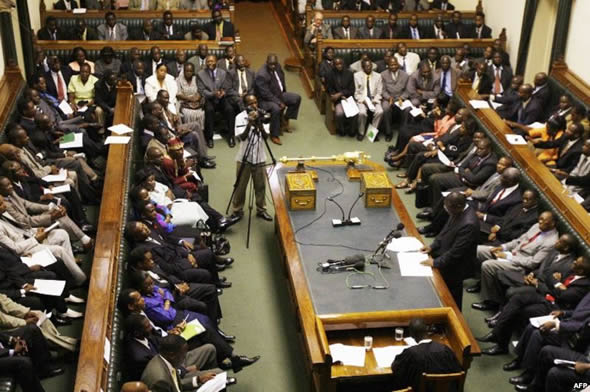
THE tug-of-war between government and non-governmental organisations (NGOs) over the Private Voluntary Organisations (PVO) Amendment Bill demonstrates how the Zanu PF administration is determined to go beyond regulation to stifle everything that stands against its transgressions.
This is not necessary in many ways.
A freely operating NGO sector gives the international community assurance that a country is ready to submit itself to scrutiny.
It acts as an assurance that a country is ready to account for its actions.
Generally, countries that demonstrate undue resentment to NGOs are pariah States, which don’t take accountability seriously, and are affronts to principles of democracy.
In Zimbabwe’s case, NGOs employ about 18 000 people, which translates to a string of positive spin-offs ranging from household incomes to foreign currency inflows for the struggling economy.
It is important to note that this sector generates up to US$44 million a year, which is critical for a country that has been badly affected by mismanagement.
These are some of the genuine issues of concern to individuals and organisations that have red- flagged proposed changes to the law, which amends the PVO Act as part of measures to curb money-laundering.
- Chamisa under fire over US$120K donation
- Mavhunga puts DeMbare into Chibuku quarterfinals
- Pension funds bet on Cabora Bassa oilfields
- Councils defy govt fire tender directive
Keep Reading
The problem is, while on paper, intentions around the Bill appear good, the government’s penchant to criminalise NGOs is evident.
Harsh penalties for transgressions, including jail time of up to one year for perceived offences, along with the push to give excessive powers enabling government to interfere with the operations of these bodies, are some of the offending sections that need refinement.
It is important to note that NGOs fill the gaps in public programmes and services that States fail to cater for.
They are not anti-government, although a few bad apples may work against governments.
The government must learn from the disturbances that happened a decade ago, when bad policies grounded the economy.
A case in point was the Empowerment Act, whose effect was extensive capital flight of not less than US$4 billion.
But, having said that, issues being raised in the PVOs Bill are of international importance.
The ability of countries to combat illicit financial flows and terrorism funding has assumed significant importance.
Countries with strong measures in place to address these vices are progressive.
They help the world prevent conflict.
Surely, there is nothing wrong with Zimbabwe moving with the global trend.
In their fight for freedom, NGOs must not just reject everything coming from government for the sake of it.
The 18 000 Zimbabweans that they employ stand to benefit from laws that are crafted to nip transgressions in the bud.











